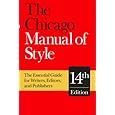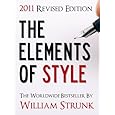PLANNING TO PUBLISH?
By Don Porter
Don’s Website
Related Topic: Inspiration for Authors when Rejection Breeds Dejection
I don’t pretend to be an expert, but I do have nine books published by legitimate publishers. That means that I have been badgered, bullied, henpecked, beaten up and coerced by a battery of editors. I’m counting fourteen professionals who have taken their whacks at me.
What I would like to do here is pass along wisdom from them.
At the moment I’m at a craft fair in Quartzsite, Arizona, selling books, but also talking to many folks who would like to write a book, have written one and are trying for a publisher, or are just asking about the process. One gal today had the impression that she needed to put her manuscript into book form. That is not the case.
Each publisher has their own requirements.
- First, you go to the library and research books exactly like the one you are proposing. I know several authors have told me. “There has never been a book like mine.” That just means they haven’t done their research.
ü There is nothing new under the sun and that certainly applies to books.
ü When you have found books like yours, same subject, same style, that is the publisher you submit to.
ü Every publisher specializes very narrowly. Don’t send a romance to Poisoned Pen Press, and don’t send a murder mystery to Harlequin. If an author has thanked his/her agent, apply to them, too.
- Second, you find those publisher/agents on the internet and religiously follow submission guidelines to the letter.
So, you’ve picked a publisher, gone to their web site, and meticulously followed their instructions. By the way, if you are not computer literate and working in Microsoft Word, then get on it. There is no longer any such thing as a paper manuscript. It will be an attachment in Word, period.
Most publishers want double-spaced, but I have one who wants single space. Some want indents five spaces, some only three. Doesn’t matter, give them what they want.
Every publisher I’ve dealt with wants the Chicago Manual of Style.
If you don’t know it, you can get it online free for thirty days and that should be enough. However, be careful, it changes. Just because you have a masters degree in lit and had a four-0 average ten years ago, do not assume that you know the manual now. Some startling changes are, only one space between sentences, only one space between periods in an ellipse, no more underlining, and so on. You have to get current.
I’ve known authors who stewed because the requirements for news media are different. So are the requirements for academia. Never mind, if you are writing a book, stick with the Chicago Manual, and try to find The Little Book by Strunk, edited by E.B. White.
That brings us to the manuscript itself.
Every author works differently. I write two thousand words in an evening. Next day I read what I wrote and write two thousand more, ad infinitum. That gets you into the rhythm and protects the continuity, but that’s just me. Some outline, some use post-it-notes. Some still write long hand and then transcribe. The method that works for you is the right one. I compose on the keyboard for speed, typing the stream of consciousness. Then I go back and correct dozens of typing errors. No problem on the computer, impossible on a typewriter.
After I type THE END.
I go back and read the entire book, making changes and corrections, then do it again. When you’ve read the entire book without making any changes, then you send it to your battery of first readers and editors.
Most important, you have to find an editor. Not your mother, and not a friend because you’re going to be furious at first. You submit a perfect manuscript and it comes back covered in red. Try to understand that it happens to all of us, and never mind how many books you’ve published, it still happens every time. Real editors are good at what they do so you have to swallow your pride and learn from them.
The impetus for this diatribe is a book that I read today.
A Young lady stopped by my table wanting to trade books and I always do that. Her book is from I-Universe, a nice looking book. She has wonderful characters in a superb plot, but she’s never been edited and makes dozens of amateurish mistakes because she just doesn’t know, no one has told her.
ü An example is using the word AS in almost every sentence. An editor will tell her to avoid that word. It has about fifteen synonyms, each more precise and powerful than AS. She uses it to mean when, while, during, and, because. She uses it to splice two short sentences together, and sometimes to start a sentence for no reason at all.
ü After reading that, or any other word too many times, the reader wants to scream.
It should be such a good book, because she’s such a good writer. I hope she finds an editor before the next one.
Keep writing. It’s fun, you get to play God. Of course, it’s a lot of work, but holding your first book in your hands puts you on top of the world.
Don G. Porter
Don’s Latest Book, All that Glisters.
Don’s Complete Library
By Don Porter
Don’s Website
Related Topic: Inspiration for Authors when Rejection Breeds Dejection
Don is a Guest Author with SlantedK
Thank You so Much for Stopping by.




Excellent article, as someone who just sent my book to the publisher and wants to be published this article had a lot of helpful things in it! I sent my work to my editor today so I feel good that I at least accomplished that step!
ReplyDeleteDon did the editing on my book and I am glad I met him. Many rejections later I just signed my contract with Solstice Publishing. Don't give up, don't stop writing. That is the whole purpose of what we are doing here. Write, write and write. Good Luck, Don sent me a note for you, "I just wanted to tell her she done good."
DeleteSmile, eh!